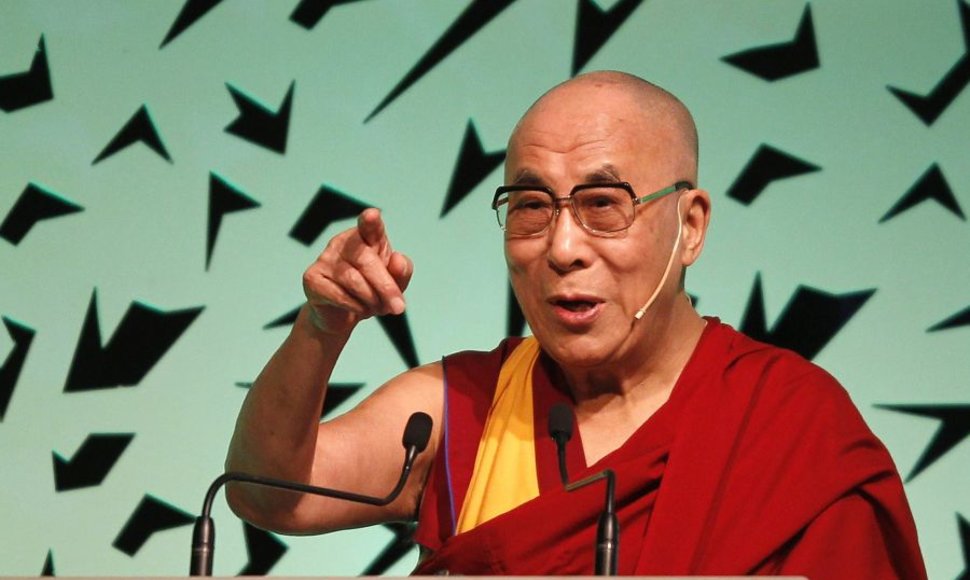During his visit to Vilnius this week, Samdup discussed the future visit with Lithuanian MPs. He said he received confirmation that Lithuania is looking forward to Dalai Lama's visit.
"That (visit to Lithuania – BNS) will happen. He is definitely coming to Latvia, so the Lithuanians I had met so far said “we want Dalai Lama to come to Lithuania”. We're definitely going to work for it," he told BNS.
According to Samdup, it seems now that the visit will definitely take place unless Lithuanian representatives' opinion changes.
"Right now everybody says "they want Dalai Lama to come", but when I come back to London, if they write to me saying "sorry, we don't want...." Dalai Lama's representative said.
Samdup said the Tibetan spiritual leader would come to Lithuania in early September. He may also visit Latvia, and perhaps the Czech Republic and Hungary.
Dalai Lama's main goal is to meet with the Lithuanian public and not necessarily politicians, according to Samdup.
"If politicians are interested in meeting Dalai Lama, he will be happy to, but he is not coming here to meet politicians," Dalai Lama's representative told BNS.
The Tibetan spiritual leader plans to speak about human values of compassion, love, and tolerance with Lithuanian people.
"And how all human beings should try and live in a harmonious way, respecting differences, diversity in culture, religion. And that is his main mission. Importance of human values he generally talks about," Samdup said.
It would be his third visit to Lithuania. He visited the Baltic country in 1991 and 2001.
Lithuania officially considers Tibet, a region in the Himalayan mountains, a part of China; however, the country has joined the European Union's (EU) call for peaceful regulation of relations between the Chinese administration and Tibet's spiritual leader Dalai Lama and his supporters.
In 1951, military units of the People's Republic of China entered Tibet and made the region part of China again. About 1 million Tibetans were killed during the military conflict.
Human rights organizations say more than 20 people have set themselves on fire in Chinese districts with Tibetan populations, mainly Sichuan, over the past year in protest of Beijing's rule.
China has been denying the accusations of repressions, saying that Tibetan people were now living better lives than ever before due to huge investment in infrastructure, schools, and housing.












